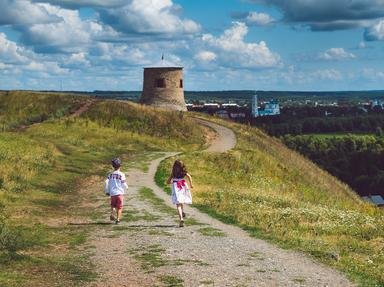Quiz Answer Key and Fun Facts
1. German aircraft attacked London during World War 2 by dropping bombs from overhead. What were these attacks called?
2. Silhouetted against the London skyline during World War 2 were a number of large barrage balloons. What alternative name was given to them?
3. Children and their families still lived in London at the start of World War 2. What did they run towards if a siren alerted them to a bombing attack?
4. The bombing of London became so bad that the British government decided to evacuate children out of the city. Named after a flute-playing character from a children's story, what special name was the evacuation given?
5. How did children mainly travel to get them far away from London when the bombings started?
6. Children who were evacuated from London had numbers tattooed on their nose to help identify them if they got lost.
7. Where did the majority of children go when they were evacuated out of London?
8. When children were evacuated out of London, what important thing did they have to carry with them at all times?
9. What was the name of the buildings where children had to stay when they were evacuated from London?
10. Once children arrived safely away from London and settled into their temporary home, where did they have to go each weekday?
Source: Author
Plodd
This quiz was reviewed by FunTrivia editor
NatalieW before going online.
Any errors found in FunTrivia content are routinely corrected through our feedback system.


